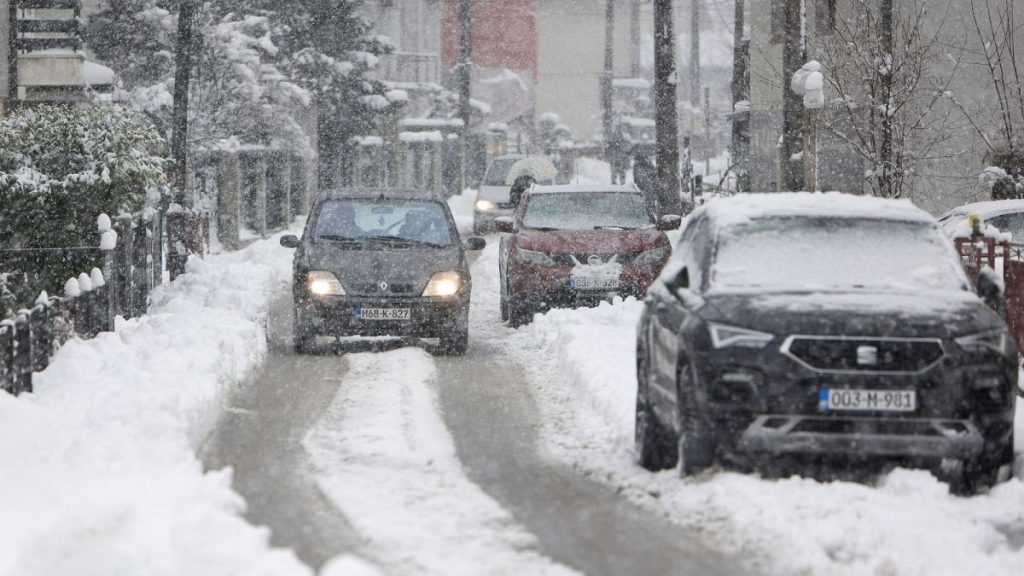The Balkan Peninsula recently found itself in the icy grip of a severe winter storm, causing widespread disruption and hazardous conditions across several countries. Slovenia, Croatia, and Bosnia were particularly hard hit, experiencing traffic chaos, school closures, power outages, and challenging rescue operations. The storm, characterized by heavy snowfall and treacherous conditions, significantly impacted daily life and travel, leaving residents grappling with the immediate effects and bracing for the storm’s continued eastward trajectory.
In Slovenia, the storm complicated rescue efforts for two Hungarian hikers stranded in the mountains north of Ljubljana. The heavy snowfall and poor visibility grounded helicopters and hampered ground crews, forcing a temporary suspension of the mission. While the rescue efforts resumed amidst challenging terrain and weather, the operation underscores the dangers posed by the storm. The hikers, trapped at a high altitude, face increasing risks as the inclement weather persists, highlighting the urgent need for a successful rescue.
Croatia also bore the brunt of the storm’s impact. Authorities issued travel bans in the central Lika region, effectively shutting down transportation in the affected area. The heavy snow rendered roads impassable, creating dangerous conditions for drivers and necessitating restrictions on travel. The storm also disrupted ferry services along the Croatian coast, further complicating transportation and impacting coastal communities. The combination of travel bans and ferry cancellations underscored the severity of the storm and its wide-ranging effects.
Bosnia experienced similar disruptions, with school closures in the northwest region due to heavy snowfall. The storm also caused widespread power outages, affecting nearly 200,000 homes and leaving residents without electricity. This power disruption further compounded the challenges faced by communities already struggling with the storm’s impact. The combination of school closures and power outages significantly impacted daily life, forcing residents to adapt to challenging circumstances.
The storm’s impact extended beyond transportation and infrastructure. Across the affected regions, authorities issued warnings urging residents to avoid unnecessary travel and to equip their vehicles with appropriate winter gear. The emphasis on safety precautions reflected the seriousness of the storm and the potential dangers posed by the hazardous conditions. The widespread nature of the storm and its impact on multiple countries highlighted the need for regional cooperation and coordination in responding to the crisis.
As the storm continued its eastward path, Serbia braced for its arrival. Meteorologists issued warnings for western parts of the country, advising residents to avoid travel and prepare for potential power cuts. The anticipation of the storm’s impact in Serbia underscored the ongoing nature of the weather event and the potential for further disruption in the region. The Balkan Peninsula’s experience with this severe winter storm serves as a reminder of the disruptive power of nature and the importance of preparedness in mitigating its effects.














